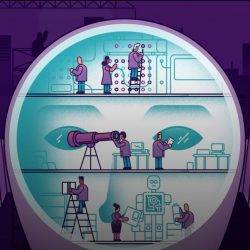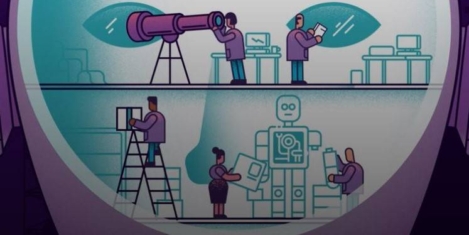April 29, 2019
UK productivity slump linked to employee experience and lack of meaning, claims Deloitte report
 Only half of UK employees consider their organisations to be effective at creating a positive work environment and only two fifths consider their employer to be effective at creating meaningful work. With 84 percent of workers stating that employee engagement and productivity are linked and 68 percent say their organisations do not measure the correlation between employee engagement and productivity – suggests UK business leaders need to think differently to prevent productivity slumps. The findings are from the Deloitte Human Capital Trends 2019 survey, which tracks the top trends shaping the agenda for HR and business leaders both in the UK and globally. Employee experience, leadership and learning, respectively, led this year’s top 10 UK trends.
Only half of UK employees consider their organisations to be effective at creating a positive work environment and only two fifths consider their employer to be effective at creating meaningful work. With 84 percent of workers stating that employee engagement and productivity are linked and 68 percent say their organisations do not measure the correlation between employee engagement and productivity – suggests UK business leaders need to think differently to prevent productivity slumps. The findings are from the Deloitte Human Capital Trends 2019 survey, which tracks the top trends shaping the agenda for HR and business leaders both in the UK and globally. Employee experience, leadership and learning, respectively, led this year’s top 10 UK trends.















 BSRIA has launched a new guide that aims to inform those involved in the design, construction and operation of a building about how an effective Business-Focused Maintenance (BFM) regime can be developed and achieved through the Soft Landings approach. The topic guide on Soft Landings and BFM is written as an ‘at a glance publication’ to give readers a glimpse of the subject and recommends further reading.
BSRIA has launched a new guide that aims to inform those involved in the design, construction and operation of a building about how an effective Business-Focused Maintenance (BFM) regime can be developed and achieved through the Soft Landings approach. The topic guide on Soft Landings and BFM is written as an ‘at a glance publication’ to give readers a glimpse of the subject and recommends further reading. 


 The UK’s regional cities are competing harder than ever with London to become the location of choice for the tech sector. According to CBRE’s report
The UK’s regional cities are competing harder than ever with London to become the location of choice for the tech sector. According to CBRE’s report 




 Procurement fraud is widespread in the UK and the country lags behind many countries in its detection capabilities,
Procurement fraud is widespread in the UK and the country lags behind many countries in its detection capabilities, 







April 8, 2019
Navigating organisations through digital transformation
by Ian Tickle • Comment, Technology
(more…)